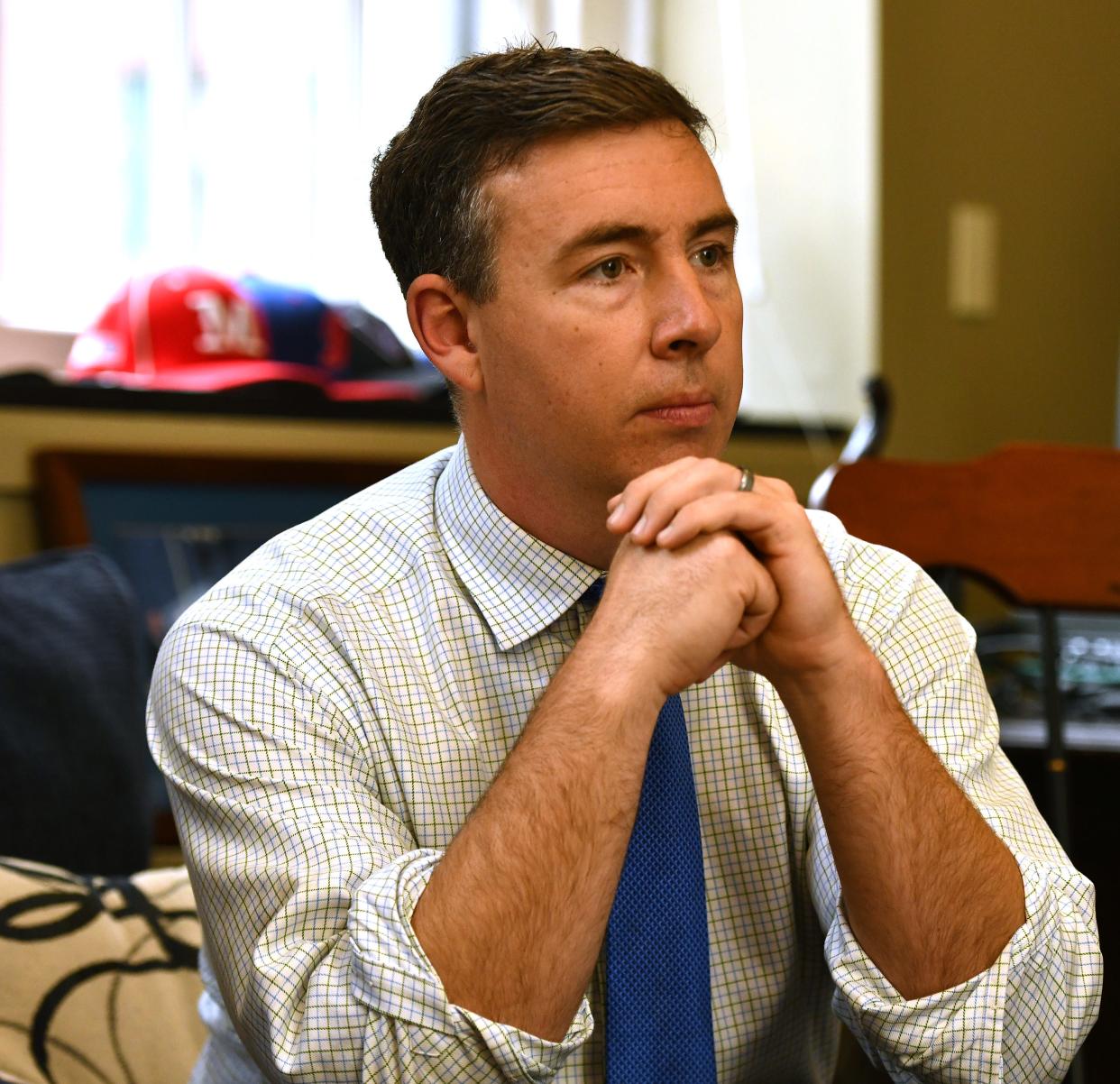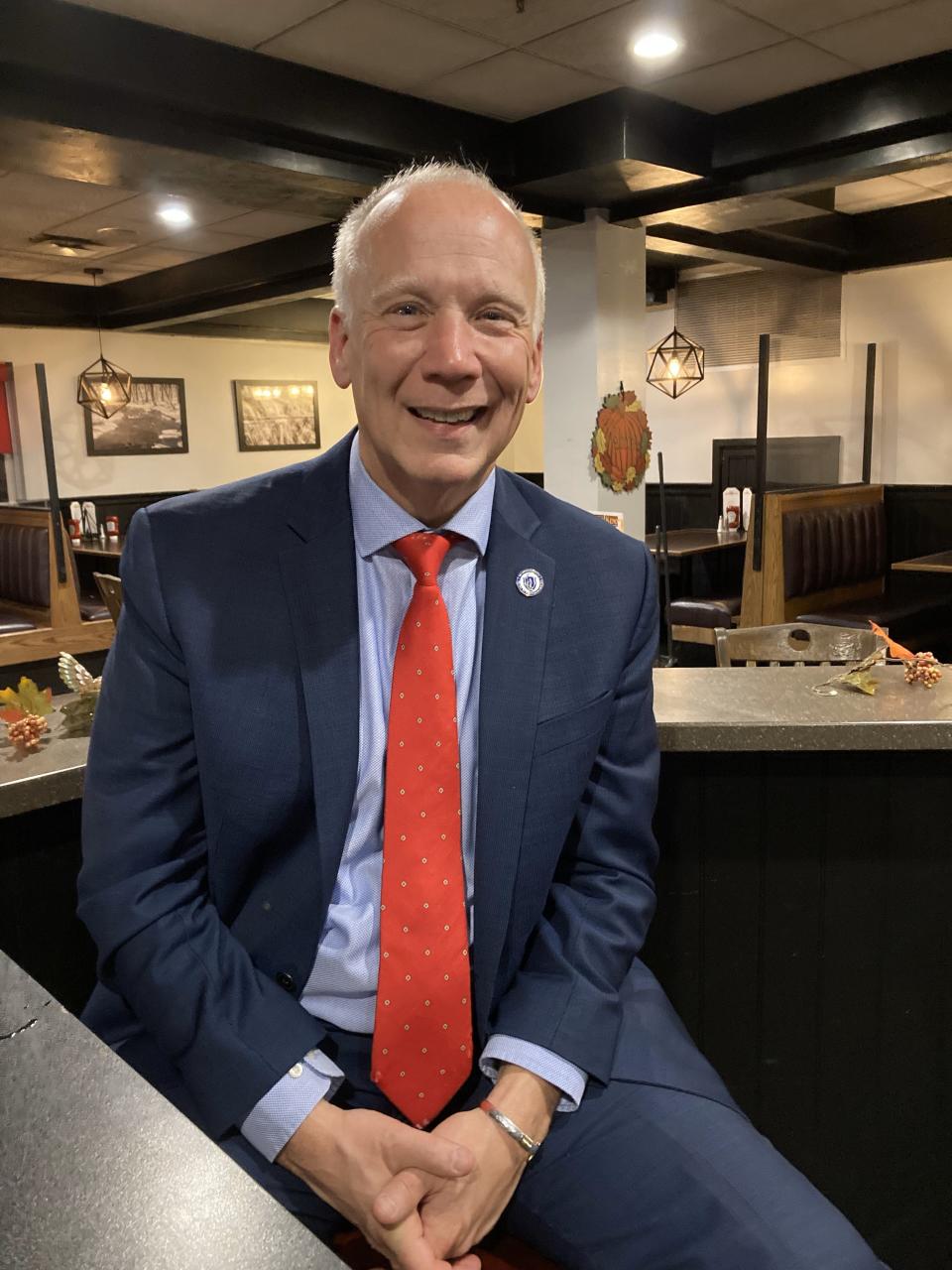Senate ready to debate, cast ballots on budget; House members opt out

- Oops!Something went wrong.Please try again later.
BOSTON — The $3.1 billion fiscal 2023 closeout budget, passed by Massachusetts lawmakers in convoluted sessions Monday, with both House and Senate members opting for a stand-up vote, contains millions for state workers in collective bargaining agreements and money for school districts facing increased costs for special education and increased enrollments due to the influx of migrants into the state.
It also includes a controversial $250 million to fund the state's emergency shelter system now capped at 7,500 families due to the lack of space and service providers to work with the flood of migrants seeking refuge in Massachusetts. It also includes funding for a congregate or group shelter to be opened in Massachusetts.
The budget was promptly signed by Gov. Maura T. Healey.
"I'm proud to sign this supplemental budget that dedicates critical funding for hard-earned raises for workers, supports municipalities with covering the costs of special education and flood relief, sustains our Emergency Assistance program, and more," the governor said in a statement. "I'm grateful to our colleagues in the Legislature for their partnership."
One of the holdups in passing the budget, due by law by the end of October, was reluctance by members of both parties to fund the shelter system with no framework as to the numbers of migrants expected to make their way to the state. Republican lawmakers also sought to add restrictions to the state's right-to-shelter law, making residency in Massachusetts a condition for applying for aid. Other conditions included having legal standing in the country.
Local preference
Those modifications to the shelter system were voted down by Democratic lawmakers. While Healey has consented to nod to state families who are also needing emergency shelter, she has not set aside any number of slots for those with roots in Massachusetts.
The budget also includes $15 million in disaster relief, some of which will go to Leominster and Fitchburg, hit hard by flooding.
"It is critical that we pass, adopt and enact this budget," Sen. Bruce Tarr, R-Gloucester, exhorted his colleagues in a speech from the Senate floor. The speech detailed the budget timeline from the moment it was proposed by Healey Sept. 13 to Monday, when the House finally cast its standing ballot to pass the measure and send it to the Senate for action.
In his speech, Tarr did not mention the lack of action in the House that precipitated the urgency felt Monday by members of both branches. However, his iteration of the timeline left no question as to where the log-jams were prevalent.

Formal sessions during which bills are debated and voted on in roll calls ended Nov. 15; there is no debate or roll call votes during informal sessions. The next formal session starts Jan. 3.
In their standing vote, House members voted 105-14 in favor of the spending bill; Senate members voted 20-3 in favor. The House took the extreme measure of closing chamber doors to preserve the quorum until the standup vote was recorded. And yes members all stood to be counted.
Republican senators, members of what Tarr dubbed the "minority crescent," Sen. Ryan Fattman, R-Sutton, Patrick O'Connor, R-Weymouth, and the newest member of the group, Peter Durant, R-Spencer, believe they scored a procedural victory as their colleagues voted to suspend a rule governing both branches that bars formal discussion after the November cutoff date in odd-session years.
Central Mass. legislators weigh in
"The whole point was to bring attention to the fact that a bill like this, the spending of $3.1 billion, with some controversy, should not be done on a voice vote; it has to have some debate," Fattman said in a joint interview with Durant after the session.
While the House opted not to suspend the joint rule, Republicans feel as if their voices have been heard.
"You don't pass a $3.1 billion spending bill when no one is paying attention, without transparency, accountability and formal votes," Durant said.
The Republican senators said they voted against the spending measure to make their point. Whether it was a voice vote or a vote cast in a formal session, there would have been no change. It was the ability to put people on the record that was key for the lawmakers.
Republicans also shut down the informal House sessions three days running the week after Thanksgiving.
In a joint statement issued by House Republicans, House Minority Leader Bradley H. Jones, R-North Reading, in part said, "The House Republican Caucus understands the importance of passing a final deficiency appropriations bill to address the unfunded union contract situation, provide disaster relief funding for cities and towns, and meet the fiduciary responsibilities associated with closing the books on Fiscal Year 2023.
"At the same time, we remain deeply concerned about the lack of meaningful reforms contained in the bill to address the emergency shelter crisis created by the recent influx of thousands of migrants, which remains an untenable situation that must be resolved," Jones said in the statement. "Democratic leadership put us in an impossible situation by intentionally weaving these separate issues together. There is no legitimate reason that funding for union contracts and aid for cities and towns needed to be tied to controversial immigration policy; it was done by design.
"The Democrats are trying to promote a false narrative laying the blame on our caucus for holding up final action on the closeout budget for the last few days. The reality is the Democrats delayed action on this bill for nearly two months, failed to reach an agreement before formal sessions ended on November 15, and did not produce a conference committee report until November 30, exactly eleven weeks after Governor Healey first filed the bill.
"We are dismayed that we were denied the opportunity by Democratic leadership to do our job as legislators, the job that we were elected to do by the citizens of this Commonwealth," Jones said.
This article originally appeared on Telegram & Gazette: Mass GOP senators believe voice has been heard with rules change

